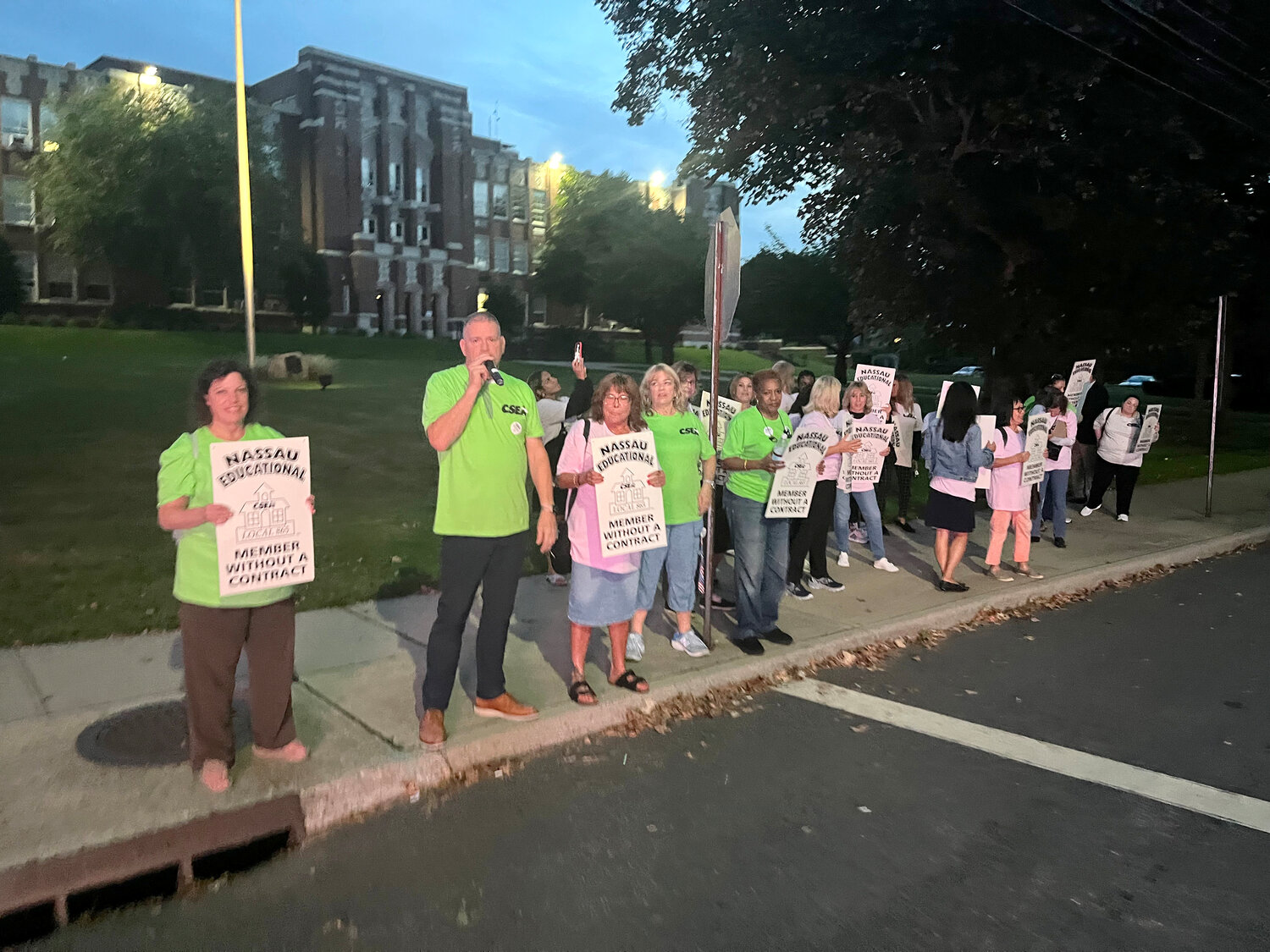Sunday, October 13, 2024
Clerical workers take to the street in O.B.
Clerical workers from the Oyster Bay-East Norwich Central School District gathered outside Oyster Bay High School during a Board of Education meeting on Sept. 17 to protest stalled contract negotiations, calling for a living wage after over a year of bargaining. The workers, represented by the Civil Service Employees Association, have been operating without a contract and are pushing for a deal that includes fair pay increases.
Superintendent Francesco Ianni declined to comment on the negotiations, but did say that the district was still “negotiating with the unit.” George Storm, president of CSEA’s local unit representing the clerical workers, said the group is demanding wages that reflect the rising cost of living.
“We’ve been negotiating for over a year now, and we’ve been forced to go to impasse,” Storm said. “We’re out here fighting for a living wage.”
“We’ve been underpaid for years,” Brooks said. “In the last few contracts, we settled for one-and-a-half percent raises, while the cost of living skyrocketed. Now, we want to make sure we’re earning a livable wage.”
Brooks, who said she earns $70,000 per year after nearly two decades with the district, pointed out that newer employees are paid significantly less.
“For someone hired in 2013, their starting salary is around $47,000 to $50,000,” she said. “They’ll never see $70,000, and they’re being offered one-and-a half percent raises. Plus, they’re required to pay 25 percent of their health insurance, which goes up every year, leaving them with less take-home pay.”
Workers say that while their salaries stagnate, other employees in the district are seeing much higher pay increases.
“We’ve got people in other units getting significant raises,” Brooks said. “A 2 percent raise for someone making over $300,000 is about $61,000, but for us, it’s only around $2,000 a year.”
The clerical workers’ call for a fair contract comes as the district faces broader labor tensions. Protesters noted that other units within the district have also raised concerns about pay disparities.
Despite these challenges, the clerical workers remain committed to their jobs and the students they serve, but frustration is growing. Many feel that the district has taken advantage of their dedication to settle for less than they deserve.
“We’ve always settled for little to nothing,” Brooks said. “But we can’t keep doing that. The cost of living keeps going up, and we’re just asking for a wage that allows us to live.”
As the workers continue their protest, they hope that their message will reach district administrators and spur progress at the bargaining table.
HELP SUPPORT LOCAL JOURNALISM
The worldwide pandemic has threatened many of the businesses you rely on every day, but don’t let it take away your source for local news. Now more than ever, we need your help to ensure nothing but the best in hyperlocal community journalism comes straight to you. Consider supporting the Herald with a small donation. It can be a one-time, or a monthly contribution, to help ensure we’re here through this crisis. To donate or for more information, click here.
Sponsored content
Other items that may interest you






